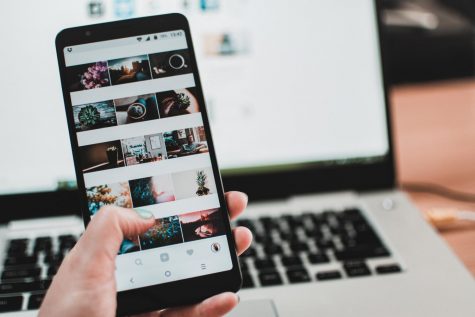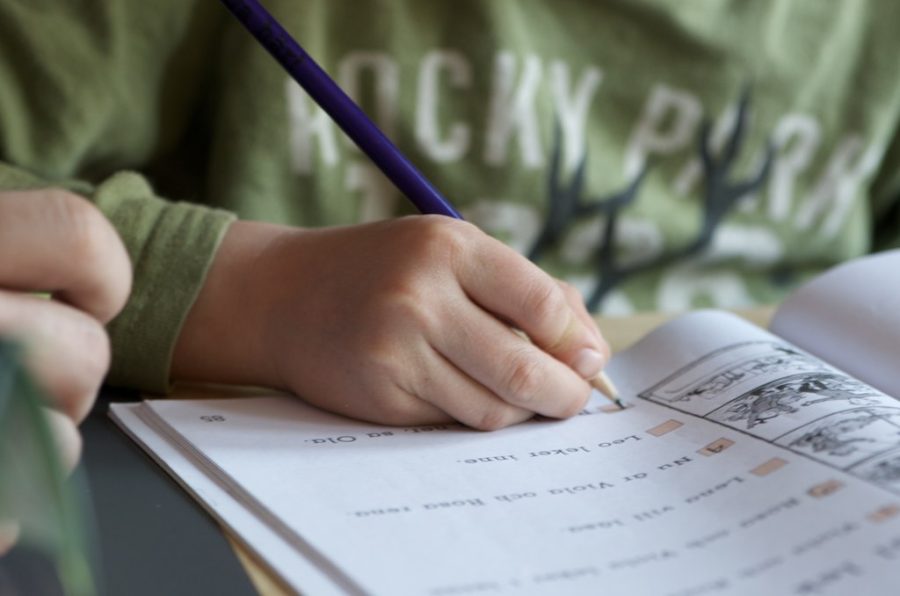Why Smartphones Make You Less Smart

//GENEVIEVE GEOFFRION//
Our generation is growing up in a time of constant stimulation and instant gratification. It seems as if everything we could ever need or want is right at our fingertips, and one of the biggest, and most common tools we have easy access to is a smartphone. They provide us with a world of inspiration and unlimited knowledge to hold in the palm of our hand, and with so much access to many helpful tools and resources, it wouldn’t be wrong to think that smartphones are in fact helping to make us smarter, right? However, that assumption is far from the truth. From the persistent distractions, decreasing social skills and lowered cognitive abilities that they cause, our smartphones are doing a lot more harm than you would think.
Think about it; is there ever a time during the day when you’re not on or near your phone? No matter what, it’s constantly on our minds, consciously or subconsciously. These so-called “smart” devices that we hold in such high esteem are actually draining our brainpower. This is proven in a study that came out from The University of Texas at Austin, by Assistant Professor Adrian F. Ward and other co-authors. The study claims that “the mere presence of one’s own smartphone reduces available cognitive capacity,”.
The study conducted an experiment in which 548 undergraduate students participated, and they were given different cognitive tests when their phone was either placed on a desk, in a bag or in a separate room, in order to discover how the presence of their smartphone affected their performance. Many of the results came back as expected, finding that cognitive ability increases the further away the smartphone is from the participants, with the most glaring finding being that no matter what, knowing that your smartphone is nearby attracts automatic attention.
Even when we aren’t consciously thinking about our smartphones while trying to do work or complete a task, it’s always there in the back of our minds draining our brainpower. As Ward explained when releasing the study, “Your conscious mind isn’t thinking about your smartphone, but the process of requiring yourself not to think about something uses up some of your limited cognitive resources. It’s a brain drain.”
As much as I hate to admit it, I’m able to see the truth even in my own habits. It’s a rare occasion when I’m able to finish a homework assignment without checking my phone in the middle of it, or thinking about what I could’ve missed in the time I’ve set it down for, and I’m sure I’m not the only one who notices this.
In an article that summarizes the many problems with our reliance on smartphones and outlines research from many neurology experts on the topic, the author says that “smartphones are causing real damage to our minds and relationships, they have impaired our ability to remember. They make it more difficult to daydream and think creatively.”
Using our smartphones has become increasingly habitual and addictive to the point that we can’t go about our day without it. Our minds feed off of the thrill we get from looking at social media or sending a text message, and we often forget how to live our lives free of this technological burden that not only is a constant distraction but also lowers our intelligence, takes away our creativity and causes us to require more effort for simple tasks.
The most effective solution derived from almost all experts and research scientists is simple; separation. It doesn’t have to be all the time, just enough to allow your brain to detach itself from needing stimulation from technology to function, and so you can regain and develop some lost cognitive ability and brainpower.
We all are capable of living a more beautiful and happier life, but we seem to be missing out on it without even realizing. It’s hard to thrive in an impatient, dopamine-driven society, but I do believe that a change can be made not only to improve the lives and future of our generation, but also to help individuals to feel more in control, focused, and maybe even a little smarter.







































